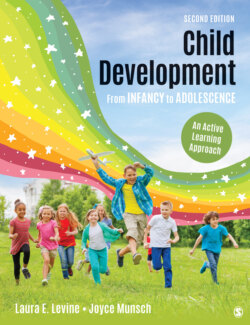Читать книгу Child Development From Infancy to Adolescence - Laura E. Levine - Страница 60
На сайте Литреса книга снята с продажи.
Nature and Nurture
ОглавлениеThroughout history the question of whether our behavior, thoughts, and feelings result from nature, our genetic inheritance, or from nurture, the influence of the environment, has shaped our understanding of why we act certain ways and how we can influence human behavior. The controversy was originally described as nature versus nurture. For example, let’s say you are an aggressive (or shy, or outgoing . . .) person. Researchers wanted to find out whether you became aggressive because you were “born that way,” with your genes determining the outcome, or whether you learned to be aggressive because of what you saw or experienced in your environment. People initially argued for one side or the other, but it became clear that any developmental outcome is an interaction of both.
Nature: The influence of genetic inheritance on development.
Nurture: The influence of learning and the environment on development.
Asking whether behavior is due to nature or to nurture is similar to asking whether your car needs an engine or wheels. You aren’t going anywhere unless you have both, and they are going to have to work together if you are ever going to reach your destination. The field of epigenetics has made us aware that what counts is not just what genes you have, but also what your genes are doing, and what they are doing is influenced by the environment you are in (Nesterak, 2015). We have left behind the era of “nature versus nurture” and entered the era of “nature through nurture” in which many genes, particularly those related to traits and behaviors, are expressed only through a process of constant interaction with their environment (Meaney, 2010; Stiles, 2009). We discuss these ideas further in Chapter 3.
